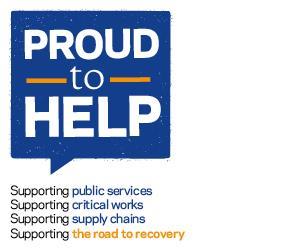The intention to ’build back better’ requires sustainable growth, Brian Berry from the FMB puts forward his ideas
Amid the freneticism of the past few months, as tragedy has spread from family to family, as lives have been devastated, and livelihoods stalled, it is important to take a moment to reflect on the sheer scale of what we are going through. I do not think that unprecedented is an overused term.
While the impact has been extraordinary, it is clear that the response and the recovery that can – and must – be built, will need equal commitment and collaboration. From crisis we have a golden opportunity to build back better: to make construction greener, to deliver the high quality homes that people need, and to invest in skills.

The coronavirus crisis has tested the ingenuity of policy makers, and revealed the strength of community spirit. COVID-19’s impact has been immediate, changing behaviours overnight.
In the first week of the lockdown, 60% of FMB members stopped over three quarters of their work on site. This rose to 96% by April. Social distancing made work as usual impossible to carry out safely. This was especially the case for the vast majority of SME builders who work on repair and maintenance (RMI) inside people’s homes. Builders could not access the materials they needed, enquiries plummeted, and clients requested work to stop.
Emerging almost 80 years ago from the smoke and rubble of London’s Blitz, our founding members had a vision to build a new and hopeful future. Then, as now, we rebuilt and recovered together
With traditionally tight margins, the impact on cashflow was instant. Just 4% of FMB members made successful applications to the Coronavirus Business Interruption Loan Scheme. Ninety five percent were ineligible for Small Business Relief from local authorities. Thirty one percent of SME housebuilders had new builds standing empty because of clients pulling out of purchases.
The Job Retention Scheme has been well used, but gaps remain for the 70% of my members who are directors of small limited companies. These entrepreneurs create thousands of jobs across the UK. Grants would have been helpful, and can still be, if the government introduced a SME Support Fund to help struggling firms, similar to that which has been made available in Scotland, Wales and Northern Ireland.
The road to recovery
The Federation of Master Builders was established in another world defining era. Emerging almost 80 years ago from the smoke and rubble of London’s Blitz, our founding members had a vision to build a new and hopeful future. Then, as now, we rebuilt and recovered together.
The spirit of cooperation that brought builders together in 1941 to set up the FMB, has defined the past few months’ response to the coronavirus by the construction industry. A sector that has long had its internal squabbles, and repeatedly failed to speak with one voice, has sensibly and unquestionably pulled together to respond to this crisis.
I have been proud to sit on the Construction Leadership Council’s Coronavirus Task Force, ensuring the voice of small builders is heard at the heart of government. With the whole construction industry around the table, this group has delivered safe operating guidance, solutions to reopening the supply chain, and is working on a recovery plan.
Locking in quality via a mandatory licensing scheme for UK construction firms is an opportunity to do things differently and better
There are four things that the FMB is calling for to drive sustainable growth, to level-up, and to continue supporting the 2.4million people who work in construction. It puts local builders at the heart.
First, we need a national retrofit strategy to help us reach net zero by 2050, to tackle fuel poverty and improve health, and to stimulate the RMI sector. Existing homes contribute 20% of the UK’s carbon emissions. A temporary VAT cut on these works would deliver vital consumer engagement in this aspect of the recovery.
>> Planning for construction’s recovery: What you can do
>> Open letter to government: Priorities for revitalising the construction sector
Second, the housing crisis has not gone away. We still need to build more homes. The FMB would like to see a wider variety of homes, and certainly a higher quality of design and build. From SME builders, to social providers, to volume developers, everyone needs to be part of the re-build. New stewardship models should be considered to help bring forward land for development. More small sites and a more manageable planning system would also help.
Construction faced a skills crisis before the coronavirus hit. Shortages of bricklayers, carpenters and general labourers risk worsening under the new immigration system, so thirdly, we must be investing in homegrown talent. SMEs train 71% of building apprentices. We need backing to deliver training in tradition skills, and skills that will be required to deliver our greener future.
Finally, we need a construction industry that people want to join, and that the public has confidence in. Locking in quality via a mandatory licensing scheme for UK construction firms is an opportunity to do things differently and better.
Together, the construction industry has the vision for a brighter future. We have the determination to do better than we have before, and move forward from tragedy. If the Government matches the ambition of the past few months there’s a lot to be hopeful about.
Brian Berry, chief executive of the Federation of Master Builders
Building’s Proud to Help campaign highlights all the work construction is doing to support the country’s public services, critical works and supply chains, as well as setting it back on the road to recovery. Contact us at newsdesk@building.co.uk with the subject line ‘Proud to help’ or via LinkedIn or Twitter with your #ProudtoHelp stories





























No comments yet